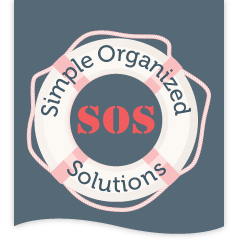 We all deal with distractions on a daily basis. Becoming distracted is basically the inability to pay attention, or lack of focus. According to Merriam Webster the definition is – ‘an object that directs one’s attention away from something else’.
We all deal with distractions on a daily basis. Becoming distracted is basically the inability to pay attention, or lack of focus. According to Merriam Webster the definition is – ‘an object that directs one’s attention away from something else’.
The ‘objects’ that cause us to lose focus, or become distracted, can be internal or external. Internally, our bodies may be alerting us in some way either physically, or mentally. You could have ADD (Attention Deficit Disorder), which is a brain-based disorder. Maybe you’re hungry and your stomach is growling. We may have something else on our minds that require a solution that we have not yet determined.
For example, right before I sat down to write this post, I realized that my label maker had gone missing. A label maker is one of the most important tools a professional organizer uses, and I was preparing to go see a client the next day. Yikes! I started trying to figure out where I last used it, the last client session where I had my tool bag. This was one of those huge distractions, at least for me, that caused me to lose focus.
External distractions can be from an electronic source such as your phone alerting you to a call, text or an email. Environmental factors can cause lack of attention, or focus. You may be too cold or hot. A co-worker, child, or pet may be demanding attention. An approaching storm is another of many external distractions.
As I’ve mentioned many times in the past, everyone is different and what works for one, may not work for another. There are however, some things you can do to avoid becoming distracted. Following suit, there are things you can do when you lose focus to get back on track. Read on for some tips to keep you focused and productive.
Prevention
- Practice mindfulness meditation regularly to improve focus and help resist distractions.
- Determine your peak performance time of day and schedule difficult tasks at that time.
- Close the door, if it has one, to the room or office that you’re working in. If not, use noise canceling headphones.
- Block time out on your schedule to work on specific tasks.
- Turn off alerts on electronic devices.
- De-clutter and organize your work area.
Staying Focused
- Visualize what it will look like when the task is complete. Ask yourself, what are the first steps to get started? Studies suggest that this focus increases the chance of getting a task done.
- Make positive statements about past achievements when you get distracted. Focusing on things you’ve accomplished provides the can-do mindset to complete a tough task.
- When you tell yourself the steps to complete a task, your mind often follows suit. Keep telling yourself to do one small task after another.
- Start a routine of breaking down big tasks into smaller, easier tasks. Over time, this will increase your ability to stay focused on bigger tasks.
- Give yourself less time than you think it will take to complete a task. Typically, when we have a deadline, for some reason we develop laser-like focus and avoid distractions to get the work done.
- If you find yourself distracted, take a few deep breaths, do some stretching exercises, or take a walk in the fresh air to bring your focus back to task.
How do you manage distractions?


